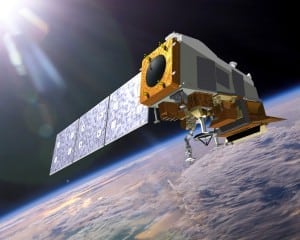
The launch of the first Joint Polar System Satellite (JPSS-1) has been delayed three weeks, from Sept. 21 to Oct. 12, according to the National Oceanic and Atmospheric Administration (NOAA).“The date change gives engineers additional time to test a certain type of capacitor, a device that stores an electric charge, used on the spacecraft,” NOAA said in a statement Aug. 10. “Engineers are also assessing the status of the Advanced Technology Microwave Sounder,” a Northrop Grumman [NOC]-built instrument that will…

 By
By 











